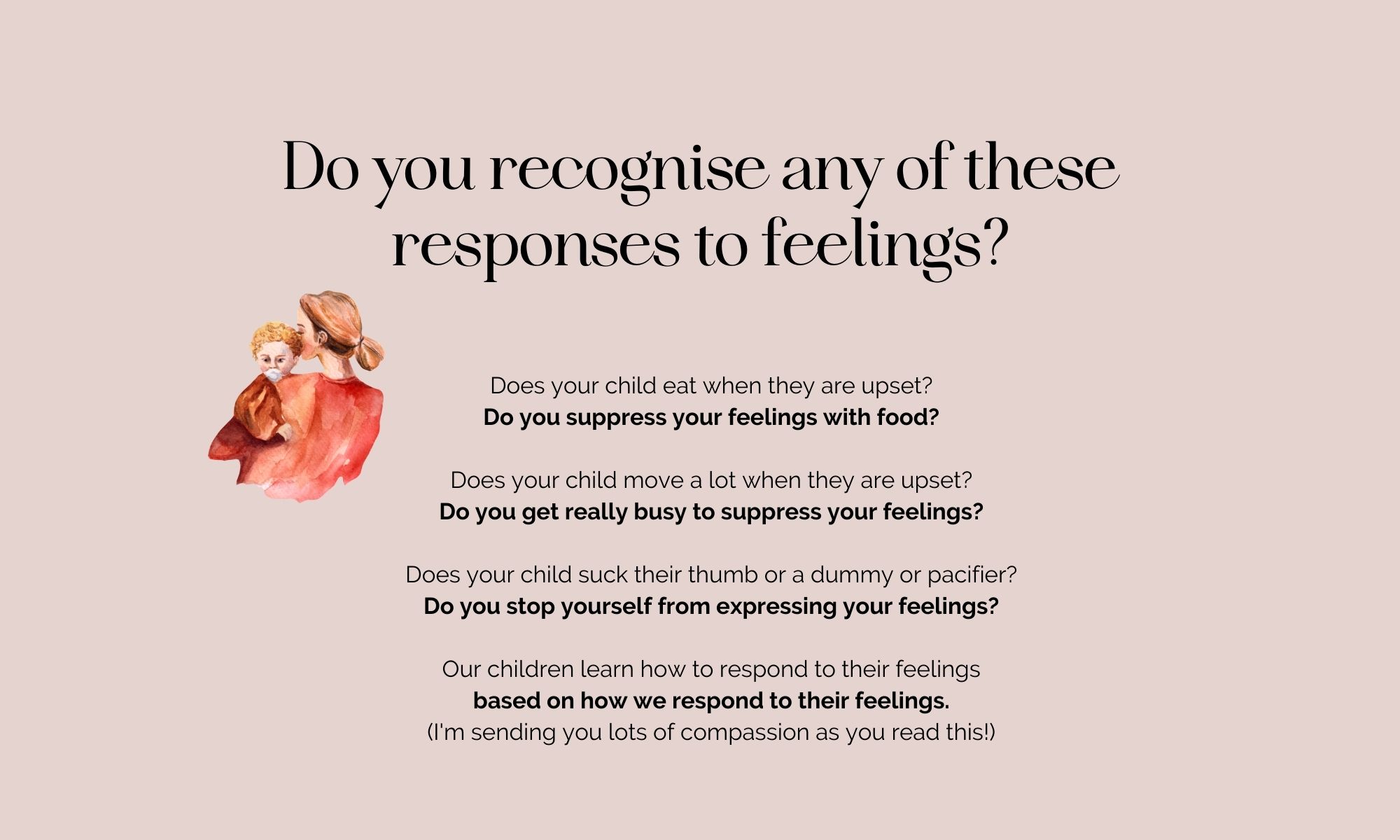I’m sending you lots of compassion as you read this information.
Understanding this process can help us connect with painful feelings and conditioned self-judgments.
I really value deep self-compassion for us all, and believe that it is through self-compassion that change most easily comes.
How our feelings were responded to deeply affects how we respond to our own feelings and how we respond to our child’s.
If our parents fed us every time we felt upset (and not hungry) ~
we learnt to interpret those sensations as hunger ~
and so we may eat when we are upset.
Then we might interpret our child’s painful feelings as hunger ~
and feed them when they are actually upset.
So they learn to interpret that sensation as hunger ~
and to eat when they feel those sensations.
If our parents moved us every time we felt upset ~
we learnt to interpret those sensations as a need to move.
We might get busy or do exercise when we feel upset.
We might interpret our child’s upset feelings as needing movement ~
and jiggle or rock them.
They might get hyperactive whenever they feel upset.
The same applies for distractions and screens and any other way that can be used to suppress feelings.
Making changes in this intergenerational transmission requires us to explore our own sensations, feelings , interpretations and responses, as well as our responses to our child/ren.
